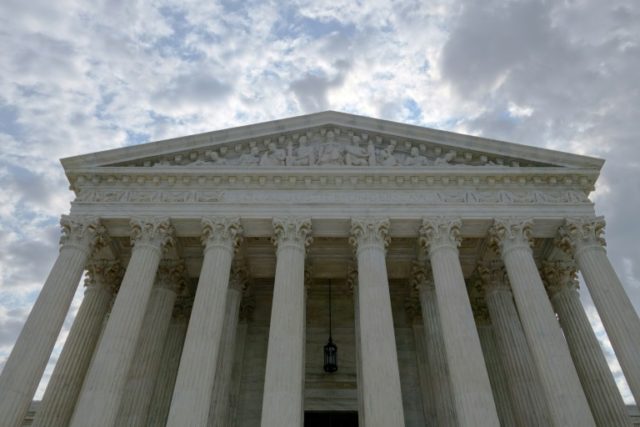Washington (AFP) – The US Supreme Court said Monday it would hear a potentially groundbreaking death penalty case on whether Texas violates the constitution in how it determines who is mentally fit to be executed.
In hearing and ruling on the case in Texas, which executes more inmates than any other US state, the court could inch closer to a decision on the constitutionality of the death penalty as a whole.
Bobby James Moore was sentenced to death for shooting and killing a grocery store employee during a botched robbery in 1980 in Houston, and has been behind bars ever since.
A Texas court used current medical standards to determine that Moore is intellectually disabled and thus cannot be executed under the US Constitution.
But the Texas Court of Criminal Appeals overturned that decision, using instead a decades-old definition for intellectual disability that found Moore was not, in fact, disabled.
Moore’s lead attorney Clifford Sloan slammed that decision as “startling.”
“Abdicating its obligation to enforce the Eighth Amendment to bar the execution of intellectually disabled prisoners, Texas’s highest criminal court has decided that Texas courts must continue to apply a 1992 standard of intellectual disability unless and until the state’s legislature sees fit to enact a statute,” he wrote in a court petition.
“The applicable medical standards for diagnosing intellectual disability have changed since that time.”
Texas has executed 537 people since 1976, nearly five times more than any other US state.
The justices, however, will not take up a second question raised by the Moore case — on whether executing a prisoner after decades on death row violates the Eight Amendment’s ban on cruel and unusual punishment.
An earlier list of Supreme Court orders had mistakenly indicated the justices would take up both questions, but was subsequently corrected.
– Racism at play? –
The high court will also take up a second Texas death penalty case, deciding whether an inmate can appeal his sentence because his own original trial attorney allowed testimony asserting that he was more likely to be violent in the future because he was black.
A jury sentenced Duane Buck to death in 1997 for the double shooting deaths of his ex-girlfriend Debra Gardner and her friend.
“Trial counsel’s knowing reliance on false, inflammatory and deeply prejudicial evidence explicitly linking Mr Buck’s race to his likelihood of future dangerousness is plainly extraordinary,” his current team of attorneys wrote in a statement.
“The Supreme Court’s decision to accept Mr Buck’s appeal is an important step toward restoring public confidence in the integrity of the courts.”
The court has historically been sharply divided on capital punishment cases.
It is likely to take up the Texas cases in the fall, after beginning a new term in October.
The court is likely to still be short-handed, with only eight justices instead of nine, as Republicans have vowed to block President Barack Obama’s nominee to replace the late justice Antonin Scalia. Obama leaves office in January.

COMMENTS
Please let us know if you're having issues with commenting.